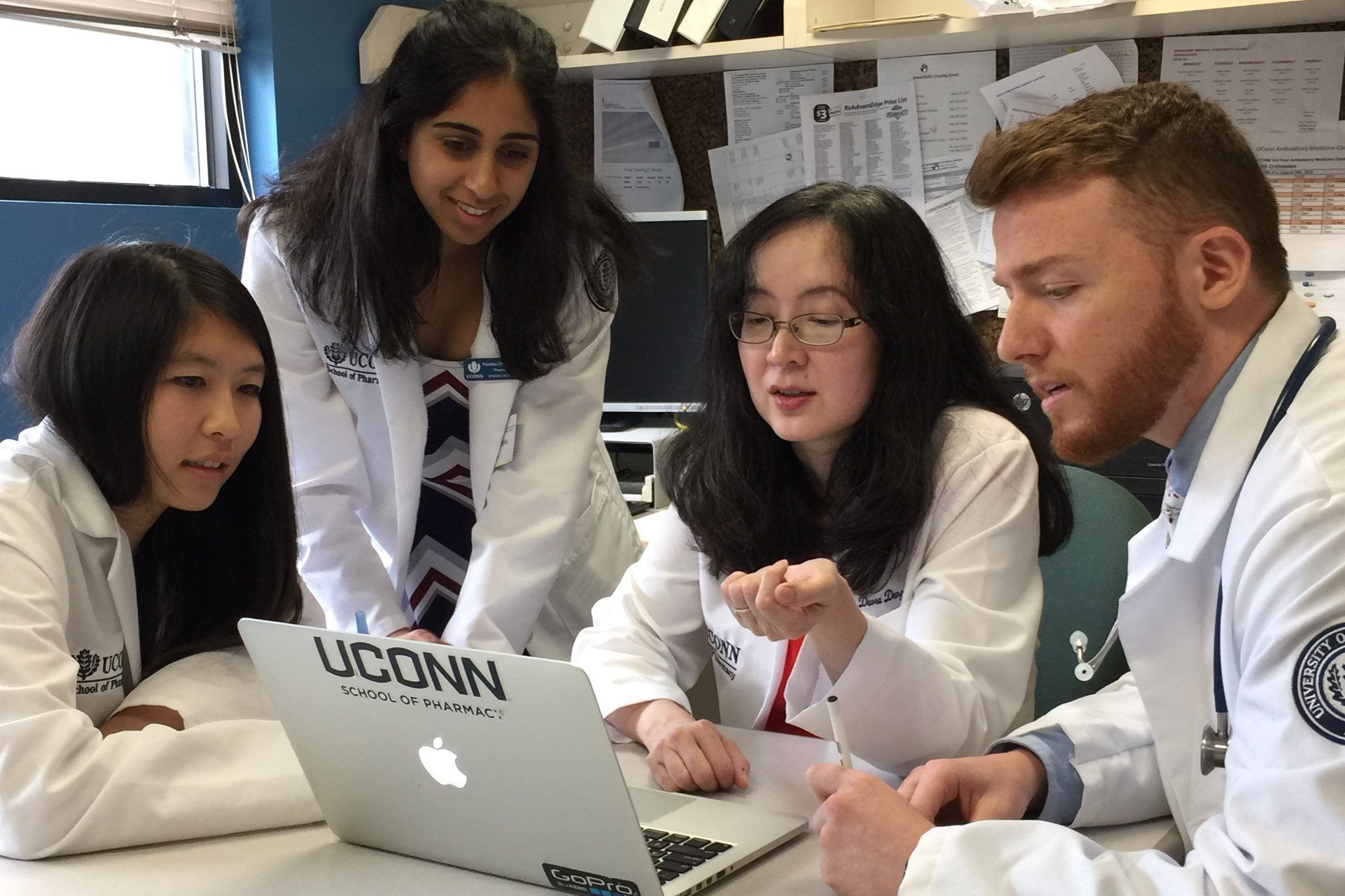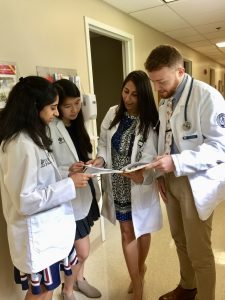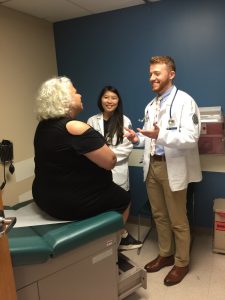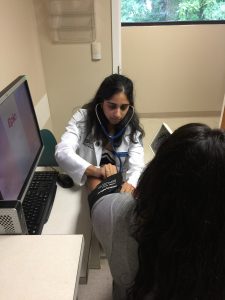Complex. The word comes up time and again when describing the patients seen at the Burgdorf Health Center, a primary care clinic in north Hartford. Many of these patients have multiple chronic medical conditions, including diabetes, hypertension, dyslipidemia, asthma, chronic obstructive pulmonary disease, HIV – the list goes on. As one would expect, it can be extremely difficult for a patient to keep all of their conditions well-controlled. In addition, many patients at the Burgdorf Clinic also must contend with a host of psychosocial challenges. Barriers such as lack of transportation, poor housing conditions, inability to afford good-quality fresh food, low health literacy, language, and lack of medical insurance are great obstacles that this patient population faces.
With so many factors added together, it makes sense why these patients are complex. It requires collaboration by a team of health care professionals to fully optimize the care for these patients. This concept of interprofessionalism is central to the goals of the Urban Service Track (UST) at the University of Connecticut. UST is an interprofessional curriculum that brings together students and faculty from the UConn Schools of Dental Medicine, Medicine, Nursing, Pharmacy, and Social Work, and the Quinnipiac University’s Physician Assistant program. UST students, designated as Urban Health Scholars, learn about the challenges and opportunities in caring for a variety of urban and underserved populations. Guided by UST faculty, students work in interprofessional teams to provide health-related community outreach and patient care services to vulnerable populations throughout Connecticut. At the Burgdorf Clinic, patients and students alike benefit from this effort.
Many of the patients at the Burgdorf Clinic are managed by a team that includes pharmacy Urban Health Scholars. Devra Dang, an associate clinical professor of pharmacy practice at the UConn School of Pharmacy, is the faculty advisor for the pharmacy students in the UST curriculum. As part of this curriculum, pharmacy Urban Health Scholars are required to spend part of their final year of training at the Burgdorf Clinic where Dang focuses on teaching a holistic and team-based approach to deliver comprehensive patient-centered care.
Below, Belinda Sam, Kristian Pretashi, and Pratibha Dhakshinamurthy (all Pharm.D. 2019) are fully immersed in the clinic, providing direct patient care side-by-side with the clinic’s health care providers.
The pharmacy students work with medical residents to perform patient interviews and assessments, establish health goals, and uncover possible barriers to optimal health. The medical residents and pharmacy students then join the clinic’s team supervised by Dang and an attending physician to comprehensively evaluate the patient, and to make and implement impactful pharmacologic and non-pharmacologic interventions. They also collaborate with the clinic’s other health care professionals such as physician assistants, nurses, and social workers.
Taking into consideration the patient’s comorbidities, medications, psychosocial aspects, and the patient’s own input, the health care team develops a therapeutic plan individualized to each patient’s unique medical and psychosocial factors. It is a tough challenge, but for the UST students and the members of the Burgdorf Clinic’s health care team, it is well worth the effort. “Our patients deserve the best care possible and our team-based approach that includes primary care clinical pharmacists and pharmacy students working collaboratively with other health care professionals is making a difference,” says Dang.
“The Urban Service Track is a wonderful program that refines students’ ability to impact patients who have a difficult time navigating the health care system due to language, financial, or cultural barriers,” says C. Michael White, Head of Pharmacy Practice. “They learn by interacting with these patients in need and by shared experiences with other students and health professionals. As the students learn more about their patients and peel back the layers of complexity surrounding their care, they also learn how powerful a committed and caring health professional can be.”
Sam, Dhakshinamurthy, and Pretashi talk about some of their experiences in UST curriculum in the videos below.






